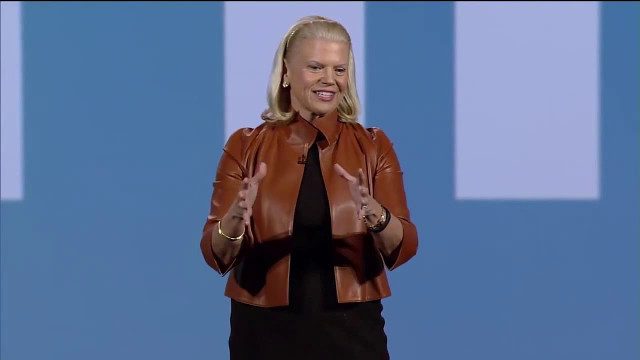
Photo by Finan Akbar on Unsplash
Investment company SoftBank is having trouble finding investors for the second wave of their “Vision Fund”. The company has taken heavy criticism for their investment strategies that some financial experts attribute to the over-valuation of companies like Uber and WeWork.
With less capital investments available, will the over-valuation of unprofitable tech companies end or will something or someone else fuel the next bubble?
Meanwhile Jeff Weiner is stepping down as LinkedIn CEO (he is still staying with the company) and Seeking Alpha is questioning why IBM didn’t select Jim Whitehurst as their next CEO.
Acquisitions/Investments
- Koch Industries acquires Infor in deal pegged at nearly $13B
Infor, which makes large-scale cloud ERP software, has been around since 2002 and counts Koch as both a customer and an investor, so the deal makes sense on that level. Koch was lead investor last year in a $1.5 billion investment, wherein the company indicated that it was a step before going public.
It’s not clear if that is still the goal, as sources suggested that staying private might provide the company with more capital flexibility in the future. Daniel Newman, founder and principal analyst at Futurum Research, says staying private longer could benefit Infor in the long run.
https://techcrunch.com/2020/02/04/koch-industries-acquires-infor-in-deal-pegged-at-nearly-13b/
- New SoftBank Tech Fund Falls Far Short of $108 Billion Fundraising Goal
Hailed by SoftBank last summer as a $108 billion sequel to its $100 billion Vision Fund, the new pool could end up being less than half that size, with nearly all of its capital coming from SoftBank itself, the people said.
A failure by SoftBank to raise a big new fund would reverberate across the tech startup world. Dozens of companies from ride-hailing giant Uber Technologies to food delivery company DoorDash Inc. got big boosts from the fund’s nearly $90 billion two-year spending spree.
Less money to invest could mean cuts to SoftBank’s 500-person investing staff.
- Elliott Management Builds More Than $2.5 Billion Stake in SoftBank
Elliott Management Corp. has quietly built up a more than $2.5 billion stake in Japan’s SoftBank Group Corp. 9984 7.13% and is pushing the sprawling technology giant to make changes that would boost its share price, according to people familiar with the matter.
Founded by billionaire Paul Singer, New York-based Elliott is known as a formidable activist investor, often seeking to influence company management. SoftBank is one of Elliott’s largest bets, according to people familiar with the matter. At current prices, the investment would be equivalent to about 3% of SoftBank’s market value.
- HPE acquires cloud native security startup Scytale
HPE announced today that it has acquired Scytale, a cloud native security startup that is built on the open-source Secure Production Identity Framework for Everyone (SPIFFE) protocol. The companies did not share the acquisition price.
Specifically, Scytale looks at application-to-application identity and access management, something that is increasingly important as more transactions take place between applications without any human intervention. It’s imperative that the application knows it’s OK to share information with the other application.
https://techcrunch.com/2020/02/03/hpe-acquires-cloud-native-security-startup-scytale/
Artificial Intelligence/Robotics
- Laszlo Bock Thinks Machine Learning Can Make Work Better
“There are seven billion people on this planet, and work sucks for most of them,” Mr. Bock adds. “How do you make it better without waiting 200 years for it to get better? What if you could actually drive business outcomes while also making work better?”
His answer to that what-if is Humu Inc., a behavioral-change startup whose mission is to “make work better everywhere through machine learning, science and a little bit of love.” Mr. Bock, 48, serves as Humu’s CEO. He started the company in 2017 with two of his former Google colleagues, Wayne Crosby and Jessie Wisdom. Based in Mountain View, Calif., Humu seeks to expand the kind of data-driven approach to personnel management that Mr. Bock developed during his 10 years as Google’s head of human resources (or as Google calls it, “people operations”).
https://www.wsj.com/articles/laszlo-bock-thinks-machine-learning-can-make-work-better-11580492585
Cloud
- Oracle Adds Data Centers in Five New Countries to Its Cloud Platform
This week Oracle announced the addition of five new regions to its Generation 2 cloud platform across the globe. This brings the number of Oracle cloud data center availability regions to 21, with a total of 36 to be available by the end of the year, which is when the company has said it will have more global data center hubs than Amazon Web Services.
The new regions are in Jeddah, Saudi Arabia; Melbourne, Australia; Osaka, Japan; Montreal, and Amsterdam.
Security/Privacy
- Researcher: Backdoor mechanism still active in many IoT products
According to Yarmak, the backdoor can be exploited by sending a series of commands over TCP port 9530 to devices that use HiSilicon chips and Xiongmai firmware.
The commands — the equivalent of a secret knock — will enable the Telnet service on a vulnerable device.
Yarmak says that once the Telnet service is up and running, the attacker can log in with one of six Telnet credentials listed below, and gain access to a root account that grants them complete control over a vulnerable device.
https://www.zdnet.com/article/researcher-backdoor-mechanism-still-active-in-many-iot-products/
Infrastructure/Hardware
- Apple fined $27 million in France for throttling old iPhones without telling users
A couple of years ago, Apple released an iOS update (10.2.1 and 11.2) that introduced a new feature for older devices. If your battery is getting old, iOS would cap peak performances as your battery might not be able to handle quick peaks of power draw. The result of those peaks is that your iPhone might shut down abruptly.
While that feature is technically fine, Apple failed to inform users that it was capping performances on some devices. The company apologized and introduced a new software feature called “Battery Health,” which lets you check the maximum capacity of your battery and if your iPhone can reach peak performance.
And that’s the issue here. Many users may have noticed that their phone would get slower when they play a game, for instance. But they didn’t know that replacing the battery would fix that.
Some users may have bought new phones even though their existing phone was working fine.
- The Coronavirus Impact on Hardware Startups
It seems like most people are expecting factories to open on 2/10 as planned. However, the expectation is being set that production will take two weeks to ramp back up to normal. And, there is some concern that larger companies will likely exert pressure to be at the front of the line.
Another problem at this point is movement into and out of China. The Chinese border with Hong Kong is only open at a few places and many are afraid to enter China right now for fear that they won’t be able to leave.
Everyone anticipates a big logistics clog once things start shipping, which will introduce delay and cost, although the magnitude of this is unknown.
Finally, the downstream (or upstream – I never get that right) impact of long lead time items will add another wrinkle once people understand the volume and timing constraints when things settle down.
https://feld.com/archives/2020/02/the-coronavirus-impact-on-hardware-startups.html
Yes – I posted this video twice. Watch it. Subscribe. I might make more.
Other
- Status Quo For IBM Is Unsustainable. An Acquirer Would Treat Its Assets Better
The fact that Jim Whitehurst was given the consolation prize of President is all you need to know about where the board is, in regard to a sense of urgency about the going forward. Whitehurst was the erstwhile CEO of Red Hat; he is not some “wet-behind-the-ears” naive tech company founder. Before Red Hat, Whitehurst was the COO of Delta in what was very trying times going into the teeth of the great recession. Whitehurst understands how to perform while playing hurt. Whitehurst also knows how to grow a tech business. Red Hat was an admired company before IBM scooped it up by paying top dollar. I am sure that during the courtship Rometti whispered in Whitehurst’s ear all kinds of promises including the fact that she will retire soon and IBM may very well be his realm. That is what a lot of people who grew up in technology, in earlier more genteel times, hoped. IBM would finally get its footing by reaching outside and putting its house in order. This “business-as-usual” coronation, promoted a 40-year IBMer, who has no corporate leadership experience, no experience in restructuring, no experience in building a tech company. His claim to fame is that he bought Whitehurst’s company for top dollar? Really?
- IBM, Marriott and Mickey Mouse Take On Tech’s Favorite Law
An unusual constellation of powerful companies and industries are fighting to weaken Big Tech by limiting the reach of one of its most sacred laws. The law, known as Section 230, makes it nearly impossible to sue platforms like Facebook or Google for the words, images and videos posted by their users.
The companies’ motivations vary somewhat. Hollywood is concerned about copyright abuse, especially abroad, while Marriott would like to make it harder for Airbnb to fight local hotel laws. IBM wants consumer online services to be more responsible for the content on their sites.
But they all see an opening as both Democrats and Republicans increasingly raise their own concerns about the power of the tech industry and the law.
https://www.nytimes.com/2020/02/04/technology/section-230-lobby.html
- Jeff Weiner will step down as CEO of LinkedIn June 1, product head Ryan Roslansky steps up
There is a major change ahead for LinkedIn, the social network for the working world, now with 675 million members. Jeff Weiner, who has been leading the company as CEO for the past 11 years, is stepping down on June 1, 2020. His new role will be executive chairman. Ryan Roslansky, who is currently head of product, will be stepping up to the role of CEO, while Tomer Cohen, who had been under Roslansky, is stepping up to lead the product team.





